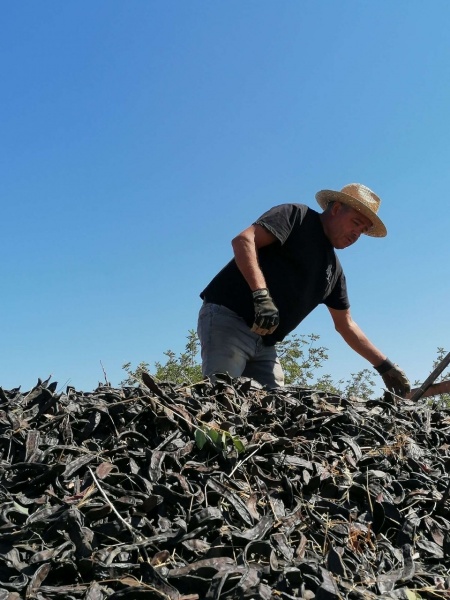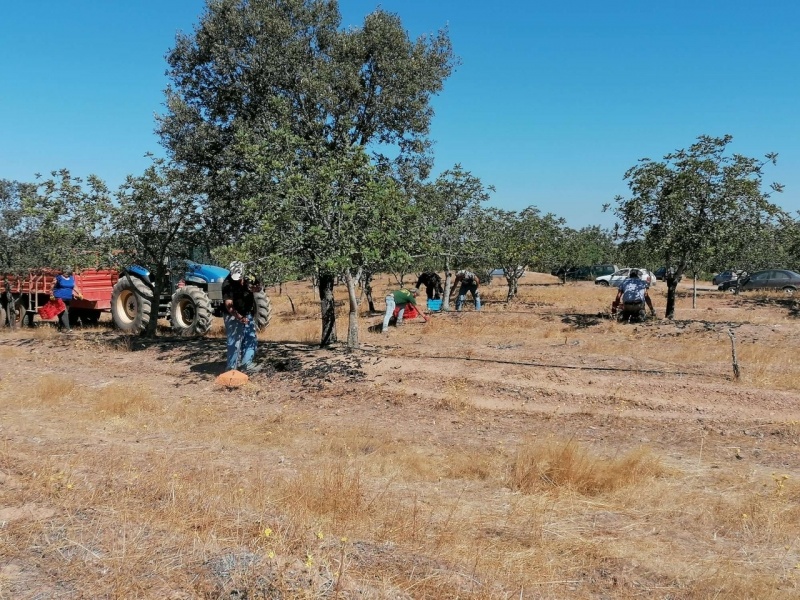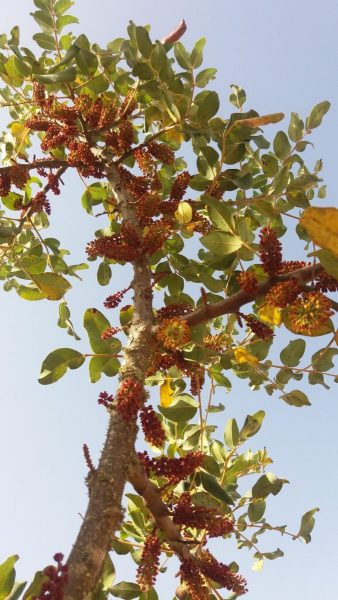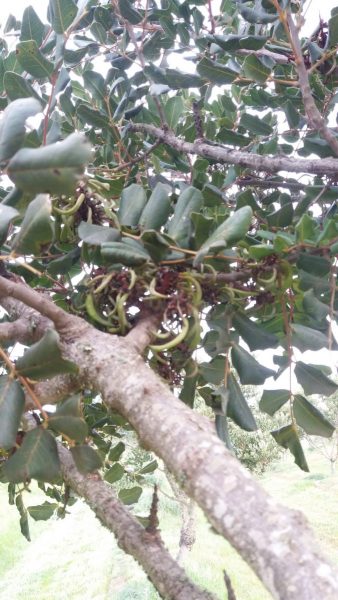On more than 260 hectares, the carob trees are grown and harvested in Vale de Camelos with a wide range of characteristics. Both the pulp and the pods with their seeds are characterized by a high usability, especially in the food industry.
The pulp, called carob, is high in fiber and contains plenty of calcium and iron, making it suitable as a dietary food and for children. Carob powder is also free of cholesterol, lactose and gluten and therefore also an alternative to chocolate for food allergy sufferers. The natural sugar content and the special fruity-caramel aroma of the carob powder are reminiscent of cocoa. In contrast to this, however, it is very low in fat and free of stimulating substances such as caffeine and theobromine. Carob powder can replace cocoa powder in all functions. It is suitable for marble cakes as well as mousse, pudding or milk mix drinks.
For dietary purposes, carob gum is used as a baking aid in gluten-free bread. Acute nutritional and indigestion, colitis and celiac disease are applications for diet products from the core meal. An active substance isolated from the nucleus has been shown to lower both blood sugar and cholesterol levels and have a weight-reducing effect. Carob has at least 6 different substances that inhibit tumor formation. It acts as an antioxidant substance and thus as a protection against cell damage by free radicals.
Carubin is five times as swellable as strength. It is widely used as a binder and stabilizer in confectionery, sauces, soups, puddings and ice cream. Under number E 410, it is therefore fully authorised in the EU (including for organic products) as a food additive.
The carob tree is an extremely heat- and dry-resistant, evergreen tree that reaches heights of 10 to 20m. The tree grows on calcareous soils (also sandy, water-permeable clay) and tolerates a high salinity. It grows and fruites in marginal locations without irrigation and without pesticides. Therefore, it is ideally suited for our organic cultivation.















